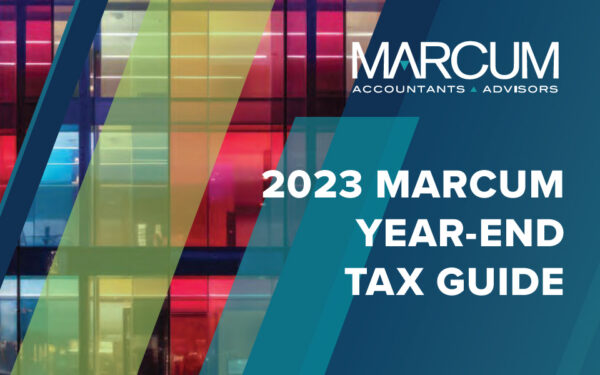The IRS Presses the Pause Button on the ERTC Program – What’s Next?
By Aaron Fox, Partner, Nonprofit Tax Services
On September 14, 2023, the IRS issued a news release temporarily halting the processing of new claims for the employee retention credit (ERC) due to concerns about potentially improper claims (IR-2023-169). This pause is anticipated to extend until the end of the year, underlining the gravity of the issue and calling into question the usefulness and prospect of the program as it heads into its final years.
The IRS has been cautioning taxpayers about incorrect ERC claims for some time, and this latest announcement underscores the depth of the issue and the extent of the IRS’s concern. Since its initiation, the IRS has received roughly 3.6 million ERC claims. As of September 6, 2023, approximately 637,000 Forms 941-X (used to claim the ERC) remained unprocessed. While many claims have already been processed and paid, others remain pending. The IRS has expressed reservations about the legitimacy of a substantial number of these claims, highlighting the ERC as a top concern in their list of tax scams for 2023.
The IRS is most concerned about applicants not understanding the eligibility rules and submitting applications that may incorrectly claim the credit. The recent news release emphasizes that improper ERC claims may necessitate repayment, potentially including penalties and interest. Unfortunately, many of these claims will need to be repaid by the applicant. Considering the fees being paid to some unscrupulous vendors to support the claim of up to 25%, a forced repayment of the ERTC to the IRS may put applicants in a perilous cash flow position.
While the IRS will continue processing ERC claims received before the moratorium, the standard processing time will be extended from 90 to 180 days. Many claims will undergo heightened scrutiny, potentially requiring additional documentation for verification. Due to the sheer volume of claims, individual claims will not be expedited.
The IRS has referred thousands of ERC cases for audit, and numerous criminal cases are in progress. As a result of these efforts, the IRS Criminal Investigation unit has initiated 252 criminal investigations involving over $2.8 billion in potentially fraudulent ERC claims.
To assist employers who may have fallen prey to aggressive promoters of ERC services, the IRS is preparing to launch a settlement program to help those who currently have pending claims and those who have already received their refunds. This program will enable employers who filed a claim but have not yet received a refund to withdraw if they believe it was submitted improperly. However, withdrawing a fraudulent claim will not exempt the filer from potential criminal investigation and prosecution. Details of the repayment program are expected later this fall.
Taxpayers who have already filed their claim and are waiting on a refund or deposit should know that the Service has limited resources but continues to work through their filing backlog as fast as they can. Additionally, if you have any doubts or concerns about the credibility of the vendor you relied upon to make an ERC claim or question the accuracy of the calculation, now would be a great time to address that with a qualified provider. For those taxpayers considering making a claim, the best path forward is to review the available ERTC guidance with a qualified advisor. The IRS has released guidance that further supplements existing guidance in the form of a question-and-answer guide that offers a step-by-step eligibility analysis for employers.
The IRS News Release does not dissuade eligible taxpayers from filing for refunds. However, potentially eligible taxpayers who have not yet filed ERC refund claims may want to collaborate with their tax advisor to fully grasp the complex eligibility requirements.
It is worth noting that the statute of limitations for refund claims generally expires on April 15, 2024, for 2020 refund claims and April 15, 2025, for 2021 refund claims. The statute of limitations for IRS enforcement generally follows the same timeline. However, as of the time of writing, the statute of limitations for the enforcement of 2020 claims expires on April 15, 2024, while claims for the first two quarters of 2021 expire on April 15, 2025, and claims for the third quarter of 2021 have been extended and now expire on April 15, 2027.







